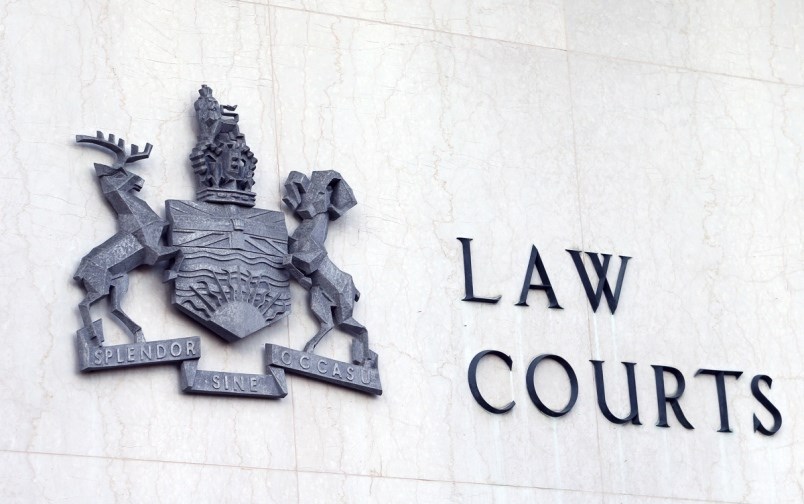A nasty family feud has erupted in a million-dollar lawsuit with one cousin accusing others of cheating him out of his share of a thriving Vancouver Island fitness-club chain for the equivalent of a roll of loonies, $25.
A former corporate solicitor at Blake, Cassels & Graydon LLP, Khaled Shariff claims in B.C. Supreme Court documents he was fired as CEO and squeezed out of VI Fitness Centres Inc. as a minority shareholder.
He alleges shareholder oppression and abuse of power by his cousins Salim Karim (as trustee of the Salim Karim Family Trust), Amin Karim (as trustee of the Amin Karim Family Trust), their mother Parviz Karim and InnHouse Management Inc. (part of the skein of the family-owned InnHouse Group of Companies).
Salim has been an executive member of the Young Presidents Organization, listed on 2008 Business in Vancouver’s Top 40 under 40 list, Ethno B.C.’s 2010 Entrepreneur of the Year and a board member of the Vancouver Police Association.
Amin has 33 years of experience in hospitality and retail which included a celebrated period in charge of the Lonsdale Quay Hotel.
The Karim defendants denied all of Shariff’s claims.
In 2013, Shariff said he considered leaving his downtown legal job to pursue a dream of becoming an entrepreneur and discussed his plans with the Karims. What happened next is under dispute.
Shariff envisioned searching for an existing, financially viable, company that was for sale and, with the help of his cousins as partners, acquire and operate it.
He alleged they discussed a deal in which he would not be paid for his search but he would become director, president and CEO, receive a 25 per cent share and have an option to purchase an additional 25 per cent of any firm they acquired.
On March 11, Shariff quit his job as a solicitor and joined InnHouse as the unpaid “Director of Business Development.”
A month later, he learned the two-decades-old chain with eight fitness outlets in Victoria, Nanaimo, Courtenay and Campbell River was for sale.
In November, while they were negotiating the purchase of VI Fitness, he claimed the parties signed a “term sheet” agreeing on the new ownership structure, Shariff’s employment and options.
The Karim defendants insisted in their recently filed response to Shariff’s suit that no remuneration details, corporate titles or share percentages were established in any agreement.
They said negotiations on a term sheet were started but no final document was produced and denied any corporate changes were taken without authority, in breach of any agreement or contrary to the parties’ reasonable expectations.
On Dec. 12, they acquired VI Fitness for about $9 million — $2.8 million of capital from the InnHouse Group, $6.1 million in financing and $100,000 in a shareholder loan from Shariff.
He received 25 per cent of the common shares, became a director, president and CEO and over the following year, according to his T4 for 2015, earned $170,846.78 in taxable income (though he insisted some $20,000 was nontaxable benefits).
But the Karim defendants alleged that during his tenure at VI Fitness, Shariff failed to take their direction, implement their strategies or commit himself to the business by moving to Victoria and engaging with staff.
They said attempts to repair the breakdown of communications failed and they fired him on Jan. 4, 2016.
After Shariff’s termination, he alleged in his January statement of claim that the Karim defendants assumed control of VI Fitness and through a corporate amalgamation squeezed him out.
As a result of the manoeuvres, Shariff said in May 2016 he was offered but declined a total of $25 for his shares in VI Fitness together with a $10,000 gratuitous payment.
He argued his shares were worth roughly $1 million under a clause in term sheet.
The defendants said they determined the “fair market value” of his stock as of Jan. 4, 2016 based on a report authored by CrossonVoyer LLP.
They claimed no reasonable application of the formula in any draft of the term sheet could yield a million-dollar payout.
Shariff also claimed the Karim defendants acted oppressively by withholding or concealing business records and their corporate conduct pushing him out of the company.
He wants proper compensation, damages, costs and interest, and for the court to condemn the Karims.
In response, they are seeking special costs for having to defend themselves against such toxic allegations:
“The Karim defendants specifically deny that, at any time, they engaged in harsh, vindictive, reprehensible or malicious conduct, and further deny that any such conduct could, at law, give rise to punitive damages in connection with a claim of oppression.”
None of the claims by either side has been proven in court.



